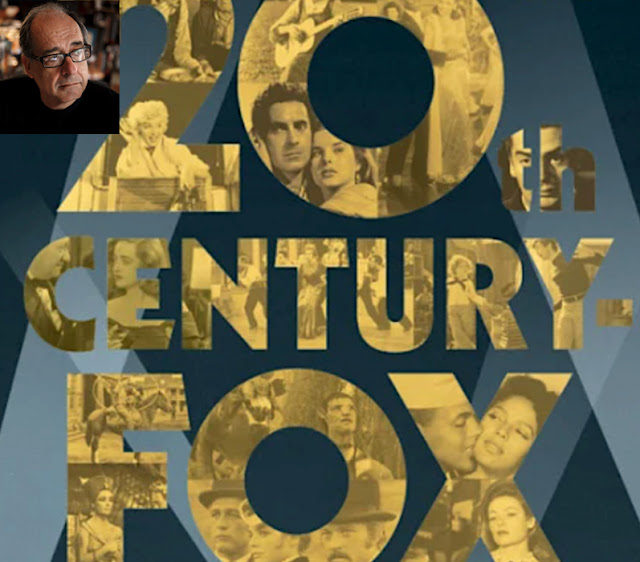Vol. 113
Five Questions for Film Historian Scott Eyman
about 20th Century Fox
By THIRSTY
Scott Eyman is an award-winning, New York Times bestselling author, film historian, movie biographer and journalist. With a distinguished career that includes the William K. Everson Film History Award from the National Board of Review, his sixteenth book, 20th-Century Fox: Darryl F. Zanuck and the Creation of the Modern Film Studio, shines a spotlight on one of the most influential movie studios from its glory days under the leadership of mogul Darryl F. Zanuck to its buyout by Disney. Over the years Eyman has delved into the lives and times of the greatest Hollywood legends, including Cary Grant, John Wayne, Henry Fonda, Jimmy Stewart and Louis B. Mayer, to name only a few, and his keen insights have contributed to a better understanding of Hollywood, its people, its culture and its magic.
Stay Thirsty Magazine was privileged to visit with Scott Eyman at this home in West Palm Beach, Florida, for these questions about his newest book.
STAY THIRSTY: As one of America's leading film historians, what motivated you to write 20th Century Fox: Darryl F. Zanuck and the Creation of the Modern Film Studio?
SCOTT EYMAN: I’ve always loved Zanuck’s films, both the ones he made as production head at Warner’s and on his own at Fox. My books always begin with admiration for the work. He was a dynamic storyteller with a firm grasp of all the ingredients that go into making good movies.
STAY THIRSTY: What were the major factors that contributed to the downfall of William Fox, the mogul who built 20th Century Fox?
SCOTT EYMAN: Basically, bad timing. Fox had bought Loew’s Inc., including MGM, Loew’s filmmaking subsidiary, not to mention making heavy investments in early sound and widescreen technology. Most of the purchases were made with borrowed money. When the stock market crashed in 1929, all of Fox’s purchases were worth slightly less than half of what he had paid. The result was a slow but inevitable collapse of Fox’s fortune and the studio that carried his name.
STAY THIRSTY: Why did Darryl F. Zanuck rise so quickly and succeed at such a young age? Was he 20th Century Fox's Irving Thalberg?
SCOTT EYMAN: Aggression. Willingness to work 20 hours a day if necessary. He wasn’t Thalberg, who was always regarded as the human equivalent of a fine porcelain figurine – delicate, easily ruined. In fact, Thalberg had a rheumatic heart and died at 37. By contrast, Zanuck was a workhorse who delegated very little.
Creatively, there were similarities, but Zanuck’s preference was for movies that were far rougher than Thalberg’s.
 |
| Scott Eyman |
STAY THIRSTY: What role did money and public acceptance play in the fortunes of 20th Century Fox?
SCOTT EYMAN: Well, the movie business subsists on public approval. Zanuck was a commercial filmmaker, but he was a rarity in that once or twice a year he would make a movie that was overtly uncommercial. The Ox-Bow Incident, The Grapes of Wrath, No Way Out, All about Eve, etc. That some of these movies were in fact financially successful would have been impossible to predict from a reading of the script or original story. It was a combination of the casting, the direction, and Zanuck’s insistence on pace and rhythm in the storytelling.
STAY THIRSTY: Did the rise of Richard Zanuck and his ultimate betrayal by his father represent a zeitgeist embedded in the film business that exists to this day?
SCOTT EYMAN: Zanuck was a fierce lion in the jungle of Hollywood. No lion will be willingly pushed aside, not even by his own son. At first Darryl perceived Richard as carrying on his name and accomplishments, but when he began to perceive Richard as a threat, he felt he had no choice but to take action and remove the threat. That Richard not only survived, but ultimately thrived, was a backhanded tribute to the Zanuck genes.
Link:


